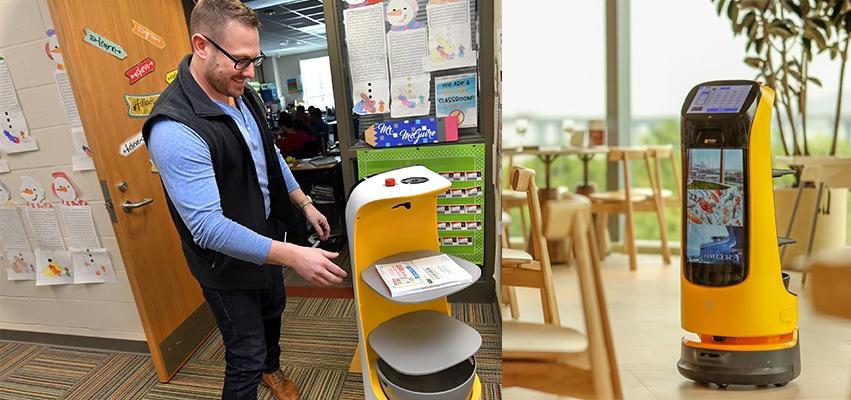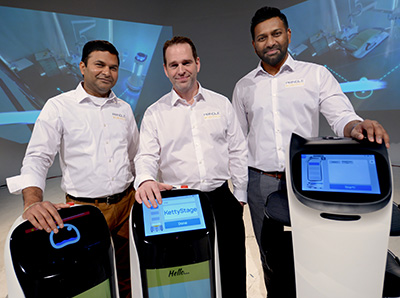
Sudheer Sajja plans to launch a robot invasion from Peoria.
This is no sci-fi thriller, but a solid business plan for Sajja’s Pringle Robotics to build a national operations center in Peoria by year’s end, with his “bots” being built, marketed and maintained by up to 50 employees.
In short, the company has imagined and designed a new type of worker that buzzes and glides with precision and efficiency and rarely tires. The bots don’t look (or talk) like the robots from “Lost in Space” or “The Jetsons.” They do promise to reduce workloads, potentially revolutionizing the custodial and hospitality industries, where they will chiefly sanitize spaces and transport food.
“We don’t see them replacing people,” Sajja says.
What he does envision is the bots being born in Peoria and zipping not just across the city and country but around the globe.
It’s the latest project for Sajja, 42, who left India in 2000 to study information systems at South Dakota State University. After earning his master’s degree in 2004, he founded Oahe Health Management, which provides claims software to nearly 750 clients. While retaining part ownership in that venture, he moved to Peoria in 2008 to join Caterpillar Inc., where he spent a decade, ultimately serving as chief architect for digital strategy and platforms.
In 2009, a cousin with a restaurant in Texas asked for a high-tech helping hand with business logistics. Sajja’s software mapped out a plan for the cousin to expand to 49 locations, and thus was born Pringle Technologies.
The firm has offices in India and South Dakota, but it’s headquartered at 1605 W. Candletree Drive in Peoria. It was here, about two years ago, that a restaurateur told Sajja about a shortage of workers and overtaxed staff, problems that have become prevalent industry-wide during the pandemic.
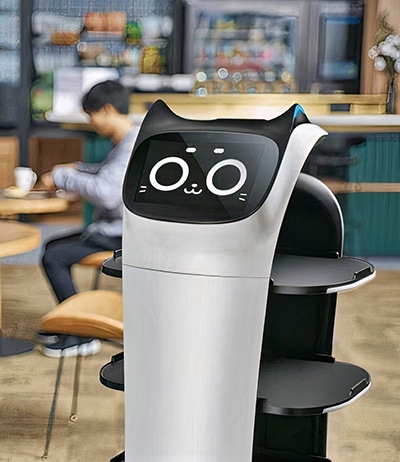
“They have problems. We try to provide solutions,” says Sajja.
He and his Pringle colleagues – 11 of them in Peoria — began to brainstorm, taking a deep dive into driverless-car technology. They came up with two types of programmable bots, each of which look like slender cousins of R2D2 from “Star Wars.” They can scan a space to set their own paths, sense the presence of a person or object, then steer clear as they go about their task.
The hospitality bot is tiered with shelves, and can assist restaurant waitstaff by bringing orders from the kitchen, for example, or by delivering beverages on a crowded convention floor.
Currently, Pringle is working on a hotel bot that can provide guest services, such as fetching a toothbrush, boarding an elevator and getting to the right floor through voice-command, motoring to the right room and alerting the guest by phone text.
The other type of bot is designed to sanitize schools, offices and other sites with disinfectant mists and UV-C light. Sajja says the need, initially driven by the pandemic, is unlikely to disappear when COVID ebbs. The bots can cover a lot of territory, relieving overtaxed custodial staffs.
Meanwhile, the bots may improve employee health. Air-quality centers can be installed in workplaces. If airborne pathogens are detected, or if a worker becomes ill, a bot can be sent in to sanitize the area in minutes without putting others at risk.
A sanitation bot debuted last year at Hickory Grove Elementary School in Dunlap, where Sajja lives with wife Rajani and their twin 9-year-old girls, Saanvi and Anvi, who attend the school. If a student forgets a lunch or laptop, a parent can drop off the items at the main office, with a bot then ferrying the items to the student’s classroom.
It saves employee time and effort, and “it gives kids an exposure to robotics that’s hands-on,” said Principal Jeremy Etnyre. No surprise, students are fascinated by the bots, he added.
It’s a no-cost pilot program for the school. Otherwise, the bots are leased – not sold — so Pringle can communicate with them and perform any troubleshooting or maintenance. Rates vary, but hospitality bots generally rent for $1,200 to $1,600 a month. The sanitation bots go for $2,400 to $3,500.
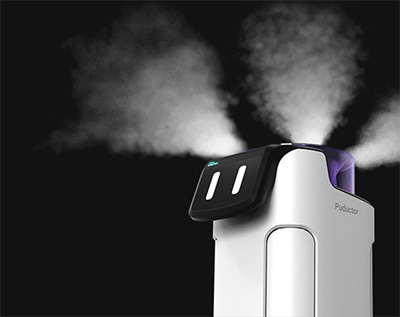
In 2021, Sajja was introduced by friends to local businessman/investor and Peoria City Councilman Sid Ruckriegel, who sees Pringle as a trigger for more high-tech development in town.
“I want to see the next pieces come to Peoria,” Ruckriegel says.
One of those pieces would be a new Pringle operations center, a step up from the unassuming industrial park office it now occupies. Components will be manufactured elsewhere and imported to Peoria, where they will be assembled into bots. Programming, maintenance and marketing units also will be located here. Company leaders are hoping nearby universities can provide them with the skill sets they need.
Pringle Robotics has about 200 clients in America, more in eight other nations. The immediate goal is to grow its U.S. market to 17 metro centers from five.
“If it works in Peoria,” Sajja says, “it works everywhere.”
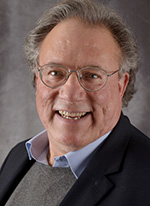
Phil Luciano is a senior writer/columnist
for Peoria Magazine and content
contributor to public television station WTVP


